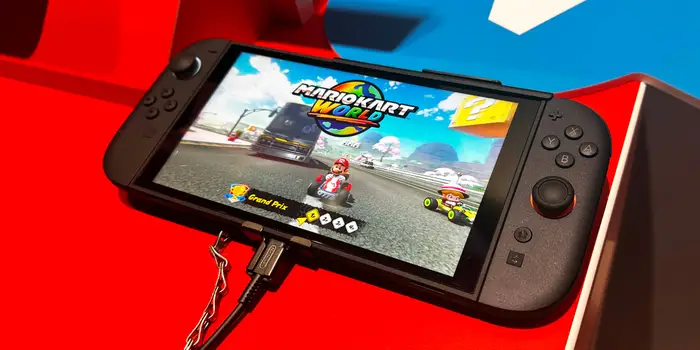The gaming industry thrives on excitement, innovation, and perfectly timed product launches. But what happens when global trade policies intervene? This question became very real for Nintendo as it announced a sudden delay in U.S. preorders for the much-anticipated Switch 2 console. The culprit? A fresh wave of U.S. tariffs has disrupted the company’s rollout strategy and sent shockwaves through the tech world.
Let’s dive into the details of this delay, the reasons behind it, and the broader implications for the gaming industry.
Nintendo Switch 2 Delay: What Happened?
Nintendo had originally planned to open U.S. preorders for the Switch 2 on April 9. But with newly announced tariffs creating financial and logistical uncertainty, the company was forced to hit pause. While the global launch is still on track for early June, American gamers will have to wait a bit longer.
This is more than just a delay. It reflects how quickly economic policies can impact even the most carefully planned tech launches. Nintendo, like many other electronics manufacturers, depends on components sourced from Asia and assembly lines in China. Tariffs could increase costs, forcing Nintendo to either absorb the expenses or pass them onto customers—neither of which is ideal in a highly competitive market.
Who Else Gets Affected?
Nintendo isn’t alone in feeling the impact. Retailers who planned promotional campaigns, third-party accessory makers with inventory ready, and game developers who aligned their launches with the console’s release are all facing ripple effects. The delay disrupts marketing plans, affects cash flow, and creates uncertainty in a space that usually thrives on timed releases.
More broadly, it demonstrates how interconnected the tech world is. A delay in hardware can affect everything from esports to online content creation, merchandise, and even job creation in gaming-related fields.
Bigger Picture: Trade Policy Meets Tech Planning
This incident is a case study of how sensitive the tech industry has become to global policy shifts. Tariffs are traditionally associated with commodities and heavy industries—but now, they’re directly influencing when and how consumers can get their hands on a gaming console.
If tariffs on gaming components continue or expand, companies may look to shift production to tariff-free zones or rethink their supply chains entirely. That means slower innovation, higher costs, and fewer options for consumers in the short term.
Ascend Education’s Take
At Ascend Education, we believe that understanding the full spectrum of forces influencing the tech industry is essential. This Nintendo case illustrates how policy, supply chains, and market strategy are all interwoven. Tech professionals, marketers, and developers need to be prepared not only for coding challenges but for real-world dynamics that affect product lifecycles.
We encourage our learners to look at technology beyond screens and specs. Understanding trade policies, global economics, and supply chain risks can help future tech leaders navigate disruptions more effectively. In an age where innovation is global, adaptability is everything.


